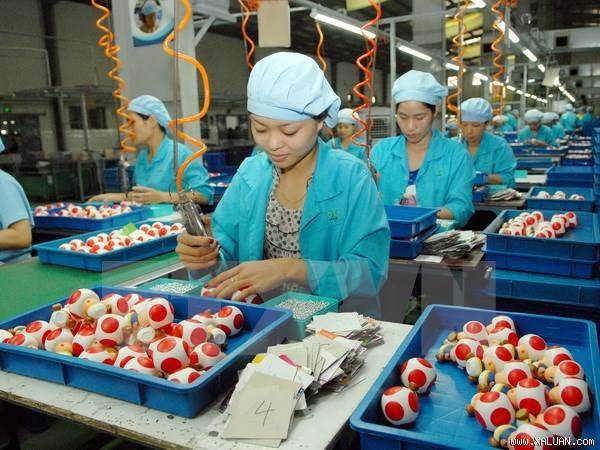Vietnam embraces opportunities from economic integration: experts
Vietnam will benefit from plenty of opportunities through economic integration and reform, however they can only be realised with suitable policies, experts said.
 Illustrative photo (Source: VNA)
Illustrative photo (Source: VNA)According to a report on macro-economy in 2015 and prospects for 2016, Vietnam’s economy is shifting from recovery to development and integration. Vietnam has also paid more attention to microeconomic reform and the conditions for the business community to take-off.
The international economic integration process has opened significant opportunities for enterprises, while highlighting motivations for reforms geared towards a market economy in the country.
Vietnam’s economy sees optimistic signs in 2016 as economic growth continues to enjoy a strong recovery, with investors and the business community believing it is currently very robust, the director stated.
Cung said the international economic integration process has progressed remarkably with several free trade agreements signed in 2015, including the Republic of Korea and the Eurasia Economic Union.
He added the formation of the ASEAN Economic Community (AEC) and conclusions of negotiations on the Trans-Pacific Partnership agreement and the FTA with the European Union will be important turning points in the country’s reform.
He went on to say that despite considerable improvement in macroeconomic indexes, motivation for growth is only slightly changed, together with underperforming factors such as public debt management, exchange rate monitoring and competitiveness, which is hindering economic progress.
Economic experts have said that many challenges come along with reform processes and economic integration; those might include insufficient awareness of reform and integration procedures, as well as the State and the government’s roles in economic management.
Regarding the State budget, Cung suggested some measures to ensure financial security in the short-to-medium term, such as capping overspending at 4 percent and reducing regular public spending.
He concluded by saying a suitable policy environment should meet international commitments and the country’s development targets, as well as nurturing the growth of the business community.-VNA












